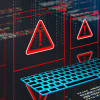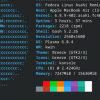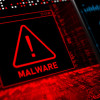Data security for Linux power users
Source: The Register
A couple of months ago I wrote a security howto for Linux newbies, the goal of which was to help people achieve decent security using easy and safe techniques. Now it's time to address you power users out there, by which I mean people comfortable with the command line, using a text editor from the console, and tweaking configuration files -- people confident enough in their ability to recover from unpleasant surprises to take a bit of risk with their systems in the interest of securing their data and their privacy.
I'll get into the Linux home network soon in a forthcoming article with our John Lettice. For now I'll concentrate on data hygiene and on-line anonymity. Why? because your Linux box is literally peppered with data traces indicating the Web sites you've visited, the files you've uploaded and downloaded, and every file you've recently accessed. You think encryption is the way to go? Think again. It's only as private as your passphrase is strong. It may be impractical for a remote attacker to crack it, but a brute-force attack is quite plausible for someone who has physical possession of your box and plenty of time. Like a police forensics lab, say.
We used to worry chiefly about people in neurotic countries like China and Saudi Arabia, where the mere possession of forbidden information or politically inconvenient materials can result in criminal action. But now, in the wake of the 9/11 atrocity, we in the enlightened West have narrowed the gap. In Europe there is a movement underway to mandate data retention for all carriers. In the USA electronic surveillance orders which used to require a judge's approval are now available for the asking. Black bag jobs are going mainstream. Librarians have been conscripted into rat duty for the Ashcroft/Ridge Black and Tans, and risk prosecution if they so much as whisper about the loathsome things they're now forced to do in the name of Homeland Security. A recent report by the FISA (Foreign Intelligence Surveillance Act) court of appeals found that the FBI had lied like children about their evidence on over seventy recent occasions to get surveillance warrants they weren't entitled to, and that all happened before 9/11. Western governments are exploiting 9/11, making every move towards authoritarianism that they can get away with, and will only continue to test the waters and grant themselves ever more authority to regulate our lives and supervise our private affairs. The convenient myth of cyber-terrorism is never far removed from the rhetoric of bureaucrats and politicians. The momentum is all wrong, and building steadily.









































































